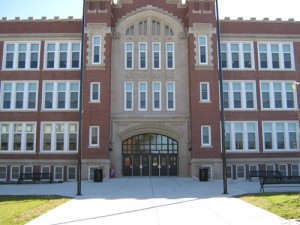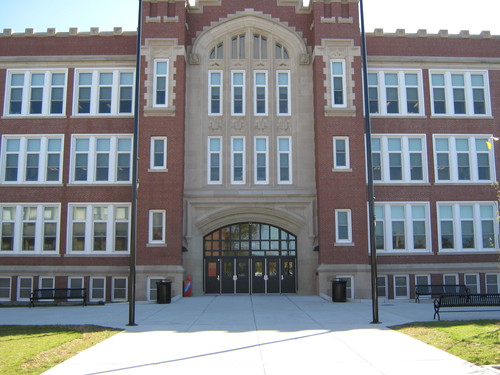
It was interesting to me to learn about the article by Paul Farhi in the American Journalism Review called “Flunking the Test“, which blows apart typical reporting on education as essentially taking so-called “reformers” views at face value.
Mr. Farhi points out that not only is the idea of an “crisis in education” false, (recalling arguments advanced at the implementation of the current public school system and the end of the common school system that had previously existed), but that in fact, American schools are doing better than ever on most relevant statistics. Mr. Farhi puts it best:
Some schools are having a difficult time educating children – particularly children who are impoverished, speak a language other than English, move frequently or arrive at the school door neglected, abused or chronically ill. But many pieces of this complex mosaic are quite positive. First data point: American elementary and middle school students have improved their performance on the Trends in International Mathematics and Science Study every four years since the tests began in 1995; they are above the international average in all categories and within a few percentage points of the global leaders (something that few news reports mention). Second data point: The number of Americans with at least some college education has soared over the past 70 years, from 10 percent in 1940 to 56 percent today, even as the population has tripled and the nation has grown vastly more diverse. All told, America’s long-term achievements in education are nothing short of stunning.
Are there troubles? Of course. But the reality is that in large part, our schools are not failing. The virtual destruction of the existing American education system (required if 100% proficiency in reading comprehension and mathematics are not met by a school by 2014, a fact which remains as long as No Child Left Behind stays in place), would essentially throw out the very policies that have made American education so successful.
Critics will point out that there are schools that are doing poorly. This is true, but as Mr. Farhi points out, these are mostly in areas where there are high rates of poverty and low rates of English. School vouchers, eliminating bad teachers by replacing them with Teach For America’s untrained novices (it takes roughly two years for a teacher to get into the swing of things, but TFA’s program lasts exactly two years), charter schools; all of these reforms fail to take aim at the structural problem here: poverty limits how well our children learn.
Now, Mr. Farhi makes clear that schools are often their own worst enemies here: many school systems prevent reporters from talking to teachers or students or viewing how classes work. As a result, reporters rely on sources like advocates, administrators, labor leaders, etc., for their sources. We’re not learning directly how things work from the sources in the trenches, something which empowers the message of education reformers while weakening the message of educators.
In Rhode Island, we can see the trouble here. The pattern of well-off triumphing over poor-off holds true, even according to charter school advocacy group RI-CAN’s report cards. Virtually all of the “best” schools are from well-off schools districts; Barrington, East Greenwich, Little Compton, etc. All of the “worst” are from Providence and Central Falls, metropolitan areas with high levels of poverty and large numbers of Spanish-speaking residents. The sole exception is Classical High School (my alma mater), which attracts students from well-off areas in Providence and the best students from impoverished areas of the capital city (or at least those who can pass the test).
Mr. Farhi points out that nearly 37% of Americans say their own children’s schools are deserving of an “A”. Looking to other schools, the numbers drop precipitously, only 1% of Americans would rate the nation’s school system that way. So, essentially, we’re happy with own schools (though they might need slight improvement), but disappointed with everyone else’s schools. Either Americans are collectively deluded as to the state of their own schools (a possibility not borne out by data showing improvement), or else media coverage has failed to properly scrutinize the overblown “crisis” in American schools that’s been advanced by well-off elites in America (many of whom never attended public schools).
In this age of austerity, it is unlikely we will provide the actual solution necessary to educational success in all our schools: fighting poverty. Instead, as poverty increases the gap between rich and poor schools will grow worse. Few schools are equipped to handle this problem. Some charter schools are, but only rarely. The wholesale charterization of the American school system is not only poorly thought out, it’s against the thinking that created the idea of the charter school: that they would act as education laboratories where public schools could not. Pathfinders for new ways of teaching.
A noble goal which has been perverted. Our choice is stark. Either we face the trouble that this country is well aware of, economic inequality that is spiraling out of control; or alternatively we can lose everything that has made this country the beacon of world achievement.

